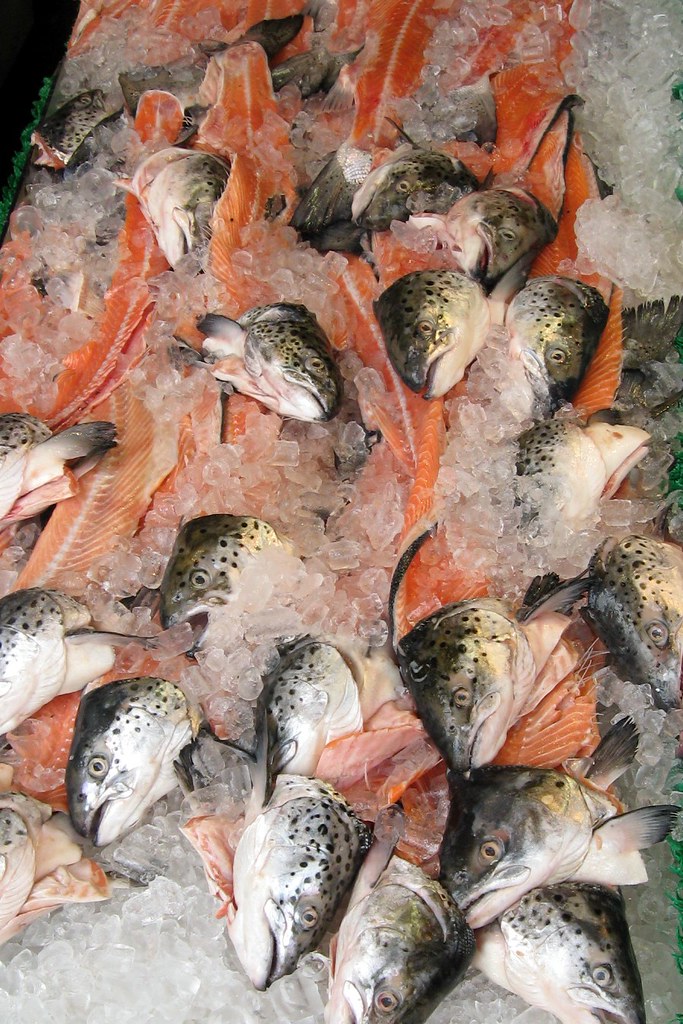
(A. Kotok)
Fish farming on an industrial scale can inflict environmental damage, even when the industry’s best practices are being applied, according to the first global assessment of marine fin fish aquaculture released today. Fin fish include species such as salmon, cod, and turbot.
John Volpe, a marine ecologist, and his team at the University of Victoria in Canada developed the Global Aquaculture Performance Index (GAPI), a system for objectively measuring the environmental performance of fish farming. Today’s GAPI 2010 report is based on 2007 data, the most recent year for which data for all aquaculture indicators are available.
GAPI uses 10 different criteria to assess and score environmental impacts. The index covers information such as the application of antibiotics and discharge of water pollutants, which allows researchers to gauge which farmed species and countries of production have the best or worst environmental performance.
Volpe says the scale of production appears to be the root cause of fish farming’s environmental issues. “Over time, the industry has made strides in reducing the environmental impact per ton of fish but this does not give a complete picture,” says Volpe, adding “Large scale farming of salmon, for example, even under even the best current practices creates large scale problems.”
The researchers found that the newer fin fish aquaculture sector in China and other Asian countries lags in environmental performance. Volpe attributed the problems in Asia to “a troubling combination of poor environmental performance and rapidly increasing production.”

 RSS - Posts
RSS - Posts